2025 NSA SEMINAR SESSIONS
wednesday, June 25th
Ten Strategies for Emotional Elasticity & Resilience for Sheriffs Offices
2:00PM – 3:00PM | Room 303A | officer wellness
Sheriff’s Offices operate in high-pressure environments where emotional resilience is critical for effective leadership, decision-making, and officer well-being. Ten Strategies for Emotional Elasticity & Resilience for Sheriff’s Offices provides law enforcement leaders with practical, research-backed techniques to enhance emotional agility, manage stress, and foster a culture of resilience. This session will equip attendees with actionable strategies to navigate adversity, maintain peak performance, and build stronger, more adaptive teams.
PRESENTERS: Dr. Mitch Javidi, CEO & President, National Command & Staff College, Jeff Kingsfield. CEO. MAGNUSWorx
 Mitch is a peak performance and human behaviorist with over 30 years of practical and hands-on experience in diverse industries, including Academia, Military, Law Enforcement, Government, Pharma, and Technology. He is the developer of “MAGNUS OVEA,” a general theory of officers’ wellness, resilience, and leadership. In addition, he has founded the MAGNUSWorx Peak Performance and Wellness APP, National Command & Staff College, the Institute for Credible Leadership Development, and the Criminal Justice Commission for Credible Leadership Development.
Mitch is a peak performance and human behaviorist with over 30 years of practical and hands-on experience in diverse industries, including Academia, Military, Law Enforcement, Government, Pharma, and Technology. He is the developer of “MAGNUS OVEA,” a general theory of officers’ wellness, resilience, and leadership. In addition, he has founded the MAGNUSWorx Peak Performance and Wellness APP, National Command & Staff College, the Institute for Credible Leadership Development, and the Criminal Justice Commission for Credible Leadership Development.
He has trained at the Joint Special Operations Command “JSOC” and the US Army Special Operations Command “USASOC.” He was awarded the honorary member of the United States Army Special Operations Command in 1999, honorary Sheriff by the National Sheriffs’ Association in 2016, and honorary Police Commander by the Santa Fe ISD Police Department (2019). He also received the “Spirit Award” from the National Tactical Officers’ Association. NTOA presents this prestigious award to an individual whose work saves lives (2019).
He served as a tenured professor at NC State University for 16 years before taking an early retirement, but he continues serving as an adjunct professor without pay (by choice) at NC State and Illinois State Universities. He is a member of the “Academy of Outstanding Teachers and Scholars” at NC State University and the Distinguished 2004 Alumni of the University of Oklahoma.
He is a published scholar with over 918+ conference presentations worldwide, including indications for Fortune 500 companies as well as top Public Safety organizations, including the US Secret Service, US Joint Special Operations Command, NATO, FBI NAA, Hispanic American Police Command Officers Association (HAPCOA), HIDTA, National Tactical Officers Association (NTOA), California Police Chiefs Associations, National Sheriffs Association (NSA), Women Leadership in Law Enforcement (WLLE), California Chief of Police Association (CATO), and many other national and state associations. He has also provided educational programs for NYPD, LAPD, Ventura County Sheriff’s Office, San Bernardino County Sheriff’s Office, Ogden Police Department, NC State Patrol, Harris County Sheriff’s Office, Walnut Creek Police Department, and 200+ other agencies nationwide.
His most recent co-authored article on Including Officers’ Wellness was published in the Police Chief Magazine. In addition, two of his coauthored papers have been published by the FBI Law Enforcement Bulletin ~ “Human Factors: Police Leaders Improving Safety While Developing Meaningful Public Trust” and “Unbundling Beliefs and Values.” His select books include “GREAT to MAGNUS,” “The Book of 10 Rings,” “Deliberate Leadership: Achieving Success Through Personal Styles,” “Handbook of Research on Effective Communication, Leadership, and Conflict Resolution,” and “Moral Compass for the Law Enforcement Professionals.”
Dr. Javidi was the recipient of the prestigious “Person of the Year” award by the National Society of Accountants ~ Senator William Victor “Bill” Roth, Jr. “Roth IRA” received the award in the following year.
mental health in jails: Operational challenges and structured solutions
2:00pM – 3:00PM | Room 303B | officer wellness
With an estimated 44% of individuals in local jails having a history of mental illness, America’s jails have become de facto mental health institutions. We have identified five core challenges in addressing mental health needs in correctional settings: inconsistent or biased treatment, the sensory and psychological harm caused by in-cell restraint practices (especially for individuals with autism or PTSD), limited access to therapy due to understaffing in both clinical and custody roles, insufficient training for correctional staff on mental health risks and suicide prevention, and fragmented care for those with co-occurring substance use disorders. These issues contribute to worsening symptoms, increased liability, and higher rates of behavioral crises and recidivism. To confront these challenges, we propose implementing integrated, standards-driven solutions that prioritize continuity of care, evidence-based therapeutic interventions, and collaborative engagement among security, medical, and behavioral health teams. Interventions include timely and equitable mental health screenings, expanded MAT/MOUD programs for individuals with substance use disorders, de-escalation strategies to reduce the use of traumatizing in-cell restraint practices, and comprehensive staff training on suicide prevention, trauma-informed care, and environmental sensitivity. By embedding mental health services into the core of jail healthcare delivery, we aim to stabilize individuals during incarceration and lay the foundation for successful reentry into the community
PRESENTER: Sheriff Gabe Morgan, Newport News, Virginia, Kaveh Ofogh, MD, Angela LeGrande, LPC
From Situational Awareness to Self Awareness. How Stress, Trauma, and Moral Injury affect law enforcement wellness
2:00PM – 3:00PM | Room 302 | officer wellness
Exposure to stress, trauma, and moral injury in the policing profession is inevitable. Battling moments of sadness, anger, fear and hopelessness are also inevitable. What is not inevitable, however, are that these events or these moments define who you are. Understanding how the policing profession impacts your mental health is critical to surviving a long career and thriving in retirement. From situational awareness to self-awareness, this presentation will provide information on the impacts of stress, trauma, and moral injury, as well as illustrate some tools and resources that help mitigate the cumulative effects of these events.
PRESENTER: Cherylynn Lee, Police Psychologist, Santa Barbara Sheriffs Office
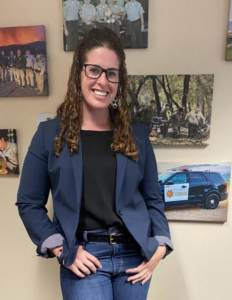 Dr. Lee is a Police Psychologist and a full-time employee of the Santa Barbara Sheriff’s Office overseeing the Behavioral Sciences Unit (BSU). The BSU houses four mental health co-responder teams, provides Crisis Intervention Training, engages in behavioral threat assessment and management (BTAM), and houses the departments wellness unit and peer support team. Dr. Lee serves on the crisis negotiation response teams for both the Santa Barbara Sheriff’s Office and the Santa Barbara Police Department and is a member of the Association of Threat Assessment Professionals (ATAP).
Dr. Lee is a Police Psychologist and a full-time employee of the Santa Barbara Sheriff’s Office overseeing the Behavioral Sciences Unit (BSU). The BSU houses four mental health co-responder teams, provides Crisis Intervention Training, engages in behavioral threat assessment and management (BTAM), and houses the departments wellness unit and peer support team. Dr. Lee serves on the crisis negotiation response teams for both the Santa Barbara Sheriff’s Office and the Santa Barbara Police Department and is a member of the Association of Threat Assessment Professionals (ATAP).
Dr. Lee is contracted with The Counseling Team International as both the Clinical Operations Director for the Tri-Counties and as a practitioner. She offers individual counseling and emergency response services across the state of California and has led dozens of critical incident stress debriefings for OIS, LODD and natural disasters for local and state agencies. Dr. Lee maintains a private practice in the Santa Ynez Valley where she exclusively works with first responders and specializes in trauma and post-traumatic stress injury.
Dr. Lee is a subject-matter expert with CA Peace Officers Standards and Training (POST), teaches officer wellness in the basic academy and also is a volunteer instructor for the FBI- 40 hour negotiators course Dr. Lee was named one of the International Association of Chiefs of Police (IACP) 40 under 40 award recipients for 2023 and is named Crisis Intervention Training International’s (CIT) Behavioral Health Practitioner of the Year for 2024.
Human Trafficking: It’s Not What You Think
2:00PM – 3:00PM | Room floridian C | future of law enforcement
This presentation serves to destroy myths, address misconceptions, raise awareness, inform as well as educate about the realization, horrors and long term effects of human trafficking and commercialized sexual exploitation of children. The objective is for participants to learn how to properly respond, report and refer for services/resources with the goal to serve better.
PRESENTERS: Jumorrow Terra Poitier, Director of Community Outreach & Anti-Human Trafficking Coordinator, Broward State Attorney’s Office, and Aytia Tarpley, Survivor Leader, Consultant, Aytiaconsults
 Aytia Tarpley is a prominent survivor leader based in South Florida. After years of lobbying and advocating for improvements to the child welfare system, Aytia shifted her focus to combating human trafficking in 2018.
Aytia Tarpley is a prominent survivor leader based in South Florida. After years of lobbying and advocating for improvements to the child welfare system, Aytia shifted her focus to combating human trafficking in 2018.
With four years of experience as a survivor mentor and group facilitator, Aytia has been instrumental in raising awareness about human trafficking, both locally and internationally, by courageously sharing her personal experiences.
Aytia has consulted for and collaborated with numerous organizations, including the Broward Sheriff’s Office (BSO), Broward County Courthouse, Broward County State Attorney’s Office, Children’s Services Council, ChildNet, Urban League, the Broward County Human Trafficking Coalition, Nancy J. Cotterman Center, the Department of Children and Families (DCF), and many more.
Her international efforts have included consulting for city and country officials from West Park, Tamarac, Lauderhill, as well as the Republic of Congo, Haiti, Nigeria, Senegal, Gambia, and Algeria. Aytia has also provided guidance to boards, film directors, and production teams for movies, series, and documentaries, including writing and directing Public Service Announcements (PSAs) for the Broward Human Trafficking Coalition (BHTC).
In recognition of her impactful work, Aytia received a city proclamation from Lauderhill in 2022 and has been featured in numerous articles throughout Florida. As she continues to expand her reach, Aytia remains committed to educating thousands about the dangers of human trafficking and empowering others through her leadership.
 Jumorrow is the current Director of Community Outreach & Anti-Human Trafficking Coordinator with the Office of the State Attorney for the 17th Judicial Circuit. Jumorrow is also the current President of the Broward Human Trafficking Coalition. Jumorrow has organized, hosted, coordinated and facilitated meetings between Global Ties International of Miami, the Broward Human Trafficking Coalition, the Broward State Attorney’s Office, The FBI, Homeland Security, local Law Enforcement and providers to discuss transnational crimes which included Human Trafficking with dignitaries and officials from Lebanon, Jordan, Qatar, Afghanistan, Tunisia, Kuwait, Saudi Arabia, Sudan, Poland Portugal, Algeria, Burkina Faso, Republic of the Congo, Djibouti, Gambia, Mozambique, Rwanda, Nigeria and Senegal. Jumorrow has been featured on Channel 6’s segment “NBC 6 in the Mix” discussing the realization of Domestic Minor Sex Trafficking in Florida. Jumorrow was nominated for the 2015 Survivor Advocate of the year award and the 2016 Victim Advocate of the Year Award. Jumorrow is the recipient of the Ruby Award from Soroptimist, the Superior Community Service Award from the Broward Crime Commission, the Community Trailblazer Award, the Lifetime Achievement Award for her work in Human Trafficking, and the 2020 Directors Leadership Award from the FBI. Jumorrow was featured on the 2019 cover of the Good News Magazine as, “a woman on the front line fighting Human Trafficking.” Jumorrow is a member of Who’s Who in America and in 2023 received Congressional Recognition from US Congresswoman Debbie Wasserman Schultz for her outstanding and invaluable service to the community. Jumorrow is the co-author of Amazon’s #1best selling book “Sister2Sister Untold Stories of Courage, Connection & Community Book Anthology.” Jumorrow is also the founder and CEO of SheMeHer, Inc a registered 501C3 organization.
Jumorrow is the current Director of Community Outreach & Anti-Human Trafficking Coordinator with the Office of the State Attorney for the 17th Judicial Circuit. Jumorrow is also the current President of the Broward Human Trafficking Coalition. Jumorrow has organized, hosted, coordinated and facilitated meetings between Global Ties International of Miami, the Broward Human Trafficking Coalition, the Broward State Attorney’s Office, The FBI, Homeland Security, local Law Enforcement and providers to discuss transnational crimes which included Human Trafficking with dignitaries and officials from Lebanon, Jordan, Qatar, Afghanistan, Tunisia, Kuwait, Saudi Arabia, Sudan, Poland Portugal, Algeria, Burkina Faso, Republic of the Congo, Djibouti, Gambia, Mozambique, Rwanda, Nigeria and Senegal. Jumorrow has been featured on Channel 6’s segment “NBC 6 in the Mix” discussing the realization of Domestic Minor Sex Trafficking in Florida. Jumorrow was nominated for the 2015 Survivor Advocate of the year award and the 2016 Victim Advocate of the Year Award. Jumorrow is the recipient of the Ruby Award from Soroptimist, the Superior Community Service Award from the Broward Crime Commission, the Community Trailblazer Award, the Lifetime Achievement Award for her work in Human Trafficking, and the 2020 Directors Leadership Award from the FBI. Jumorrow was featured on the 2019 cover of the Good News Magazine as, “a woman on the front line fighting Human Trafficking.” Jumorrow is a member of Who’s Who in America and in 2023 received Congressional Recognition from US Congresswoman Debbie Wasserman Schultz for her outstanding and invaluable service to the community. Jumorrow is the co-author of Amazon’s #1best selling book “Sister2Sister Untold Stories of Courage, Connection & Community Book Anthology.” Jumorrow is also the founder and CEO of SheMeHer, Inc a registered 501C3 organization.
Equitable Sharing Program Updates
2:00PM – 3:00PM | Room floridian D | future of law enforcement
The Department of Justice’s Asset Forfeiture Program remains committed to our law enforcement partners and compensating victims of crime. To date, more than $12 billion has been returned to victims of crime and more than $300 million is shared annually with our state and local law enforcement partners. This seminar will provide valuable updates on the Equitable Sharing Program which provides funding for training, resources, and life-saving equipment to law enforcement. This workshop covers recent policy and legislative updates impacting the program, debunks common myths, provides insight to handling challenges, and information on the opportunities provided by this valuable program.
PRESENTER: Jennifer Bickford, Chief, Program Management and Training Unit, DOJ Money Laundering Asset Recovery Section, and Matthew Colon, Deputy Chief, Program Management and Training Unit, DOJ Money Laundering Asset Recovery Section
Jennifer Bickford is the Assistant Deputy Chief for the Asset Forfeiture and Money Laundering Section’s (AFMLS) Policy and Training Unit where she is responsible for reviewing all petitions for remission, restorations, and equitable sharings forwarded to AFMLS for approval, as well as coordinating the activities of claims administrators retained in large scale fraud cases. She also provides advice, guidance, and training to United States Attorney’s Offices, federal seizing agencies, and state and local law enforcement regarding the Victim Asset Recovery Program and the Department of Justice’s Equitable Sharing Program. Jennifer joined AFMLS in 2005 after graduating from Tulane Law School in New Orleans.
Real-Time Crime Centers & Smartphones: Empowering Field Operations and Improving Situational Awareness
2:00PM – 3:00PM | Room 301 | law enforcement tech
This workshop highlights how the Spokane County (WA) Sheriff’s Office integrated mobile technology and a real-time crime center (RTCC) to transform field operations and deliver unmatched situational awareness, improving deputy safety and dramatically increasing response effectiveness. Attendees will learn how Spokane County equipped all deputies with smartphones, enabling real-time intelligence sharing and coordination across units like helicopters, drones, SWAT, and bomb squads. The agency’s innovative use of livestreaming and access to thousands of school and community cameras has improved tactical responses and fostered proactive public safety strategies.
Undersheriff Dave Ellis, who led the response to a tragic 2017 school shooting, will share how this pivotal event shaped Spokane County’s approach to technology and led to the building of strong community partnerships. Joining him, Deputy Sergeant (R) Keith Redlin of the Oakland County (MI) Sheriff’s Office—an 18-year law enforcement veteran and director of public sector for a leading mobile technology company—will provide a national perspective on how agencies are leveraging technology to address modern challenges. Sergeant Redlin was one of the first on scene at the 2021 Oxford High School shooting. His insight gained from helping hundreds of agencies leverage technology as a force multiplier will be invaluable to agency leaders.
This session delivers practical strategies for implementing scalable, technology-driven solutions that empower field operations, enhance situational awareness, and strengthen community trust.
PRESENTER: David Ellis, Undersheriff, Spokane County Sheriff’s Office, Keith Redlin, Deputy Sergeant (Ret.), Oakland County Sheriff’s Office
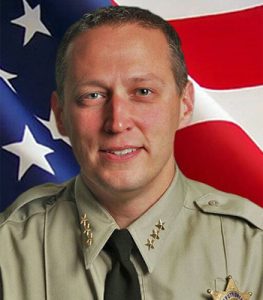 Undersheriff Dave Ellis started his law enforcement career with the Post Falls Police Department in 1998. During that time, he worked as a patrol officer, Field Training Officer, and as a member of the SWAT Team. He was awarded the Officer of the Year award in 2000.
Undersheriff Dave Ellis started his law enforcement career with the Post Falls Police Department in 1998. During that time, he worked as a patrol officer, Field Training Officer, and as a member of the SWAT Team. He was awarded the Officer of the Year award in 2000.
In 2002, Chief Ellis joined the Spokane County Sheriff’s Office. Since that time, he has worked as a Patrol Deputy, Detective, Sergeant, Chief Criminal Deputy, and Undersheriff overseeing all aspects of the Spokane County Sheriff’s Office. He oversaw the creation of the Regional Intelligence Group and the initial Real Time Crime Center efforts.
During his career with the Spokane County Sheriff’s Office, he has been awarded the Life Saving Medal, Unit Merit award, and the Sheriff’s Star award.
Undersheriff Ellis currently serves as the Chief of Police for the Spokane Valley Police Department. He is the Vice President for the Airborne Public Safety Association and is a graduate of the FBI National Academy.
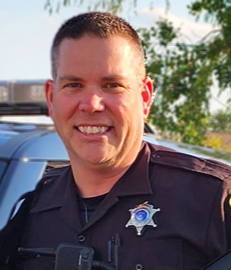 Keith Redlin has over 18 years of law enforcement experience and currently serves as a sworn Deputy Sergeant (R) for the Oakland County Sheriff’s Office within their Technology and Innovation Unit, focusing on developing and deploying cutting-edge mobile solutions. His work supports front-line deputies and over 155 agencies in the County, providing critical tools for key public safety information systems. Keith’s expertise extends to IoT-connected vehicle technologies, making him a leader in integrating advanced tools into public safety operations.
Keith Redlin has over 18 years of law enforcement experience and currently serves as a sworn Deputy Sergeant (R) for the Oakland County Sheriff’s Office within their Technology and Innovation Unit, focusing on developing and deploying cutting-edge mobile solutions. His work supports front-line deputies and over 155 agencies in the County, providing critical tools for key public safety information systems. Keith’s expertise extends to IoT-connected vehicle technologies, making him a leader in integrating advanced tools into public safety operations.
In addition to his law enforcement career, Keith leads the Public Sector vertical for Samsung Electronics America, overseeing major markets. He works closely with major public safety agencies across the country to demonstrate how mobile technology enhances workplace mobility, increases field productivity, and supports mission-critical operations.
Keith has also spent over 20 years leading multinational global accounts for Verizon/Vodafone Enterprise Services, where he focused on delivering mobile solutions across multiple countries. For the past five years, his mission has been dedicated to advancing public safety through innovative technology solutions.
Based in the Detroit, MI area, Keith holds an Associate’s Degree in Criminal Justice and is currently pursuing a Bachelor of Science in Homeland Security Counter Terrorism. His extensive experience and dedication to technology integration make him a respected leader in both public safety and the private sector.
Dark Web Investigations
3:15pm-4:15pM | Room 303A | cyber security
For many in law enforcement, the term “dark web” harbors a stigma. Shrouded in as much mystery as there is misconceptions, the criminal markets thrive on the dark web because law enforcement fears to even traverse it. This is the comprehensive dark web investigative presentation to date, covering various dark nets: TOR, I2P, Hyphnet, ZeroNet, IPFS, Yggdrasil, & ‘smolweb’, including the differences between them. Investigative methods for the dark web will be covered, as well as real world case studies.
PRESENTER: Keven Hendricks, Detective/Task Force Officer, New Brunswick Police Department/ FBI
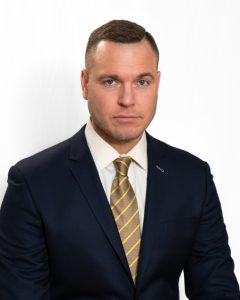 Keven Hendricks is a law enforcement veteran with almost two decades experience, previously serving as a task force officer for two separate federal agencies combatting cyber crime He is a published author with the FBI Law Enforcement Bulletin, Blue Magazine, American Police Beat, and various other publications in the DoD space. His expertise as been quoted in The Washington Post, NPR, Wired Magazine, & The Economist. Hendricks currently works as an instructor for various police training agencies, teaching a class for law enforcement on dark web and cybercrime investigations.
Keven Hendricks is a law enforcement veteran with almost two decades experience, previously serving as a task force officer for two separate federal agencies combatting cyber crime He is a published author with the FBI Law Enforcement Bulletin, Blue Magazine, American Police Beat, and various other publications in the DoD space. His expertise as been quoted in The Washington Post, NPR, Wired Magazine, & The Economist. Hendricks currently works as an instructor for various police training agencies, teaching a class for law enforcement on dark web and cybercrime investigations.
He is a Certified Cybercrime Examiner and Certified Cybercrime Investigator by the National White Collar Crime Center, a Certified Cryptocurrency Investigator through the Blockchain Intelligence Group, and a Certified Digital Asset Professional through the Global Digital Asset & Cryptocurrency Alliance. He is the founder of the Ubivis Project – StopDarkwebDrugs.com and speaks at Conferences all over the world.
Prevent, Protect, Mitigate – Planning Considerations for Threats to Special Events and Large Public Gatherings
3:15PM – 4:15PM | Room 303B | public safety
This seminar will provide participants with an increased awareness of the complex and dynamic global terrorism threat landscape and highlight considerations for how it may impact the planning for, and hosting of, the many large-scale events scheduled to take place across the US over the next few years. Presenters will contextualize the current terrorist threat and how it may impact US law enforcement and security planning for upcoming special events and public gatherings of varying type, size, location, and duration. Participants will gain insights into threat awareness and information sharing best practices, as well as security planning and management considerations, and come away with a greater understanding of how local jurisdictions can prepare to protect both their communities and visitors from around the world.
PRESENTERS: NCTC Joint Counterterrorism Assessment Team
Driving on Empty: Supporting Tired Deputies to Improve Safety and Performance on the Roadways
3:15pm – 4:15pm | Room 302 | officer wellness
 Stephen James, Ph.D., is an Assistant Professor in the Elson S. Floyd College of Medicine at Washington State University Health Sciences Spokane and core faculty in the Sleep and Performance Research Center. His research focus includes the interaction between physical stressors [such as sleep-related fatigue], law, policy, training, and practice relating to operational performance for military and law enforcement personnel. Dr. James strives to better understand the dynamics of performance in a wide variety of military and policing tasks, including driving, citizen encounters, crisis intervention, and deadly force encounters. Prior to becoming an academic, Dr. James spent more than 20 years in the British infantry as a soldier and officer, serving in Cyprus, the Former Yugoslavia, Northern Ireland, and Afghanistan.
Stephen James, Ph.D., is an Assistant Professor in the Elson S. Floyd College of Medicine at Washington State University Health Sciences Spokane and core faculty in the Sleep and Performance Research Center. His research focus includes the interaction between physical stressors [such as sleep-related fatigue], law, policy, training, and practice relating to operational performance for military and law enforcement personnel. Dr. James strives to better understand the dynamics of performance in a wide variety of military and policing tasks, including driving, citizen encounters, crisis intervention, and deadly force encounters. Prior to becoming an academic, Dr. James spent more than 20 years in the British infantry as a soldier and officer, serving in Cyprus, the Former Yugoslavia, Northern Ireland, and Afghanistan.
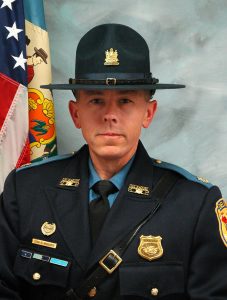 Sean E. Moriarty is the Executive Director for the Delaware Police Officer Standards and Training and Police Accreditation Commissions. Prior to this role, he served with the Delaware State Police for 29 years, retiring as a major on the executive staff. Sean holds a Doctor of Education in Organizational Leadership, and he is a 2016 graduate of the FBI National Academy, Session 263. He is a senior certified Master Instructor with the Delaware Council on Police Training, a principal instructor for the Delaware State Police Leadership Development Program, an adjunct professor for Wilmington University and Delaware Technical Community College, and he has published in periodicals including The Police Chief and the Delaware Trooper. He is also the author of the book, Leadership Development for Law Enforcement: A Model for Program Implementation.
Sean E. Moriarty is the Executive Director for the Delaware Police Officer Standards and Training and Police Accreditation Commissions. Prior to this role, he served with the Delaware State Police for 29 years, retiring as a major on the executive staff. Sean holds a Doctor of Education in Organizational Leadership, and he is a 2016 graduate of the FBI National Academy, Session 263. He is a senior certified Master Instructor with the Delaware Council on Police Training, a principal instructor for the Delaware State Police Leadership Development Program, an adjunct professor for Wilmington University and Delaware Technical Community College, and he has published in periodicals including The Police Chief and the Delaware Trooper. He is also the author of the book, Leadership Development for Law Enforcement: A Model for Program Implementation.
 Brett Cowell, MA is a Senior Program Manager at the National Policing Institute. In this role, he provides comprehensive project management for a portfolio of national training and technical assistance projects focused on preventing officer injuries and fatalities and increasing organizational efficiency and effectiveness. Brett’s portfolio includes the National Law Enforcement Roadway Safety Program (NLERS), the COPS Office Critical Response Program, the COPS Office Accreditation Program, and the Law Enforcement Officer (LEO) Near Miss reporting system, the only national, non-punitive near miss reporting system for the law enforcement profession.
Brett Cowell, MA is a Senior Program Manager at the National Policing Institute. In this role, he provides comprehensive project management for a portfolio of national training and technical assistance projects focused on preventing officer injuries and fatalities and increasing organizational efficiency and effectiveness. Brett’s portfolio includes the National Law Enforcement Roadway Safety Program (NLERS), the COPS Office Critical Response Program, the COPS Office Accreditation Program, and the Law Enforcement Officer (LEO) Near Miss reporting system, the only national, non-punitive near miss reporting system for the law enforcement profession.
Brett’s past work at the National Policing Institute includes research on officer safety training, police use of force, police foot patrol, public safety use of small unmanned aircraft systems (sUAS), crime gun intelligence centers (CGICs), and law enforcement responses to critical incidents.
Brett earned a master’s degree in Criminology, Law, and Society from George Mason University and a bachelor’s degree in Finance, with a minor in Leadership Studies, from Virginia Tech. In his spare time, Brett is a first responder with over ten years of experience at a volunteer fire and rescue department in Northern Virginia.
Impact and Influence: The FTO’s Role in Officer Safety
3:15PM – 4:15PM | Room floridian C | officer wellness
Developing healthy officers from the start is more advantageous than treating a host of negative effects years down the road. While the academy is a crucial part of a new officer’s introduction to policing, it is the field training officer, serving as a mentor and a living example of the agency’s culture, who has the ability to make a lifelong difference. Imparting resources and knowledge to officers at the beginning of their careers, to include how to stay both physically and mentally well when times get tough, will better equip them to identify, manage, and even avoid some of the challenges they will face. Join us to learn how to make sure you officers’ time with their FTOs leaves them fully equipped to effectively serve their communities!
PRESENTER: Christopher Gandia, Senior Research Associate (Police Captain Ret.), IIR/BJA VALOR
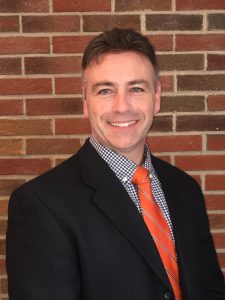 Captain Christopher J. Gandia (retired), CFP, is a senior research associate with the Institute for Intergovernmental Research. He retired in 2022 as captain from the Londonderry, New Hampshire, Police Department (LPD). His last position as captain involved an assignment as the division commander for the Manchester-Boston Regional Airport. Captain Gandia’s career encompassed more than 25 years of law enforcement experience and more than 29 years of financial experience. Interwoven career paths of finance and law enforcement created unique opportunities and experiences for him.
Captain Christopher J. Gandia (retired), CFP, is a senior research associate with the Institute for Intergovernmental Research. He retired in 2022 as captain from the Londonderry, New Hampshire, Police Department (LPD). His last position as captain involved an assignment as the division commander for the Manchester-Boston Regional Airport. Captain Gandia’s career encompassed more than 25 years of law enforcement experience and more than 29 years of financial experience. Interwoven career paths of finance and law enforcement created unique opportunities and experiences for him.
Captain Gandia turned to law enforcement in 1996 when he began his career with the LPD as a patrol officer. Before serving as captain, he also served as a sergeant and lieutenant. His career has included various tasks such as fiscal management, budgetary planning, internal auditing, organizational development, strategic planning, departmental training programs, and personnel leadership initiatives. In addition, from 1999 to 2014, he served on the Southern New Hampshire Regional SWAT team.
Captain Gandia’s prior experience includes working for PricewaterhouseCoopers, LLC, as an external auditor and for Zoom Telephonics as a financial analyst. He was a lead instructor for the National Sheriffs’ Association and the National Domestic Preparedness Coalition.
Captain Gandia earned a bachelor of science degree in accountancy from Providence College, an advanced certificate in financial planning from Merrimack College, and his CERTIFIED FINANCIAL PLANNER™ designation in 2003.
Employment Law Update: Understanding How Recent Trends and Changes Impact Employers Operating Jails and Prisons
3:15PM – 4:15PM | Room floridian D | legal affairs
Employment law is constantly evolving, and like all employers, jail and prison leadership must continue conducting operations while complying with various employment laws and regulations. From issues related to employee misconduct to military leave to religious, disability, and other accommodations, jail and prison leadership must be prepared to handle employment issues as they arise while keeping operations moving. This seminar equips leaders with an understanding of how recent changes and emerging trends in employment law impact their operations and outlines practical steps to limit risks of liability under employment law, so those leaders can focus on managing their populations and operating their facilities.
PRESENTER: Nicholas Morisani, Partner, Phelps Dunbar LLP, Candace Gregory, Partner, Phelps Dunbar LLP
 A former federal prosecutor and defense counsel, Candace Gregory has managed hundreds of government investigations on behalf of both federal agencies and Fortune 500 companies. She has investigated jail and prison operations and worked with municipalities to handle investigations. She received a commendation from the DOJ Civil Rights Division for her work in these cases.
A former federal prosecutor and defense counsel, Candace Gregory has managed hundreds of government investigations on behalf of both federal agencies and Fortune 500 companies. She has investigated jail and prison operations and worked with municipalities to handle investigations. She received a commendation from the DOJ Civil Rights Division for her work in these cases.
Before joining Phelps, Candace was most recently the Director of the Public Integrity Division and Statewide Coordinator for officer-involved shootings for the Attorney General of Mississippi. Prior to that, she was the first hybrid Assistant United States Attorney (AUSA) for the Southern District of Mississippi, responsible for litigating both civil and criminal civil rights cases.
A 2009 graduate of the University of Maryland School of Law, Candace began her legal career as an attorney advisor for the Social Security Administration. Early in her career, she also worked as a public defender for Hinds County, Mississippi, and in private practice in the areas of criminal law, family law, personal injury and workers’ compensation.
Candace is actively involved in several professional organizations, including the Mississippi and Maryland bar associations, as well as the Federal Bar Association, where she serves as treasurer. She is also a member of the Charles L. Clark Chapter of the American Inns of Court and served as a United States Magistrate Judge Merit Selection Panelist for the Southern District of Mississippi in 2022.
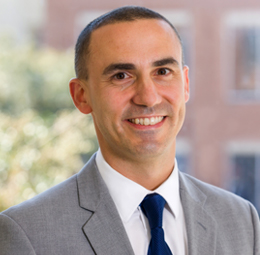 Nick Morisani manages civil rights litigation and investigations involving jail and prison operations and has extensive experience helping facilities resolve investigations. He brings a unique blend of experience in labor and employment and civil rights issues to understand officials’ operational needs. He guides state prison management and local detention facility operators through federal inquiries and high-profile cases challenging confinement conditions and security operations.
Nick Morisani manages civil rights litigation and investigations involving jail and prison operations and has extensive experience helping facilities resolve investigations. He brings a unique blend of experience in labor and employment and civil rights issues to understand officials’ operational needs. He guides state prison management and local detention facility operators through federal inquiries and high-profile cases challenging confinement conditions and security operations.
From 2015 through 2020, Nick was part of the Phelps team that successfully defended the State of Mississippi from a facility-wide class action challenging nearly every aspect of confinement at East Mississippi Correctional Facility. Prior to joining Phelps, he served as a law clerk to the Honorable Sul Ozerden, U.S. District Judge for the Southern District of Mississippi and in private practice. He earned his law degree from Mississippi College School of Law in 2009.
Nick is a leader in various professional organizations, including the Alabama, Mississippi and American bar associations. He has served in several leadership positions in the Mississippi chapter of the Federal Bar Association, including a recent term as its president. He is also active with the National Italian-American Bar Association and serves as co-editor of the Mississippi Defense Lawyers Association publication The Quarterly.
Clients and peers routinely recognize Nick’s work in litigation and employment law, supporting his ranking in The Best Lawyers in America and Super Lawyers annual lists.
Reducing Overdoses in Jails with Strategies and Resources from the Overdose Response Strategy (ORS) program
3:15PM – 4:15PM | Room 301 | leadership
The Overdose Response Strategy (ORS) is a national public health/public safety program led by the Centers for Disease Control (CDC) and High Intensity Drug Trafficking Areas (HIDTA) program to address spiraling overdose rates in the US. Attendees will hear from ORS representatives and Health Management Associates about national drug trends and lessons learned in addressing overdoses in jails. Sheriffs will also describe their own experience in using proven treatment models and data to reduce overdoses in their jails.
The NSA released Jail-Based Medication-Assisted Treatment [MAT]: Promising Practices, Guidelines and Resources for the Field in 2018, establishing the imperative that jails implement MAT to reduce overdoses in custody and upon release, and otherwise reduce risk for jails and improve outcomes for incarcerated persons. Since then, many jails have taken steps to implement MAT, but the majority of jails in the country do not offer this treatment or offer treatment that doesn’t meet the standard of care. This is an area of high risk and liability for jails, with a large and growing body of case law consistently finding in favor of plaintiffs when MAT is not available during incarceration. This presentation will offer Sheriff’s models to meet these standards and reduce liability.
PRESENTERS: James Cormier, ORS HIDTA National Coordinator, High Intensity Drug Trafficking Areas (HIDTA), Rich VandenHeuvel, Principal, Health Management Associates, Paul Kunkel, Consultant, Health Management Associates, and Lyndsie Cole, Chief Deputy, Kent County Sheriff’s Office, MI
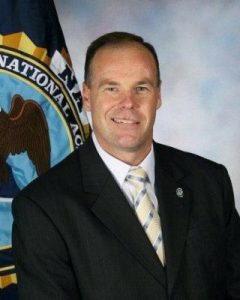 James Cormier is currently the Overdose Response Strategy (ORS) High Intensity Drug Trafficking Areas (HIDTA) National Coordinator. In this role he is responsible for coordinating with public health and public safety on a national level and providing support to the ORS state teams across the country. The mission of the ORS is to help communities reduce fatal and non-fatal drug overdoses by connecting public health and public safety agencies, promoting information sharing and supporting innovative evidence-based interventions. Previously, he was the Drug Intelligence Officer (DIO) for Massachusetts with the ORS program with the New England HIDTA.
James Cormier is currently the Overdose Response Strategy (ORS) High Intensity Drug Trafficking Areas (HIDTA) National Coordinator. In this role he is responsible for coordinating with public health and public safety on a national level and providing support to the ORS state teams across the country. The mission of the ORS is to help communities reduce fatal and non-fatal drug overdoses by connecting public health and public safety agencies, promoting information sharing and supporting innovative evidence-based interventions. Previously, he was the Drug Intelligence Officer (DIO) for Massachusetts with the ORS program with the New England HIDTA.
Jim is the former Chief of Police of the Reading, MA Police Department (RPD), and a 33-year veteran of the RPD. As Chief, Jim served in many leadership capacities. Those positions included being a past Executive Board member of the Massachusetts Police Accreditation Commission (MPAC) and is a past President of the Northeast Massachusetts Law Enforcement Council (NEMLEC), a regional Law Enforcement Council consisting of 50 police agencies in two MA counties. Jim is still an active member of the International Association of Chiefs of Police and the Massachusetts Chief of Police Association.
Jim holds a Master’s Degree in Criminal Justice Administration from Western New England College. He is a graduate of the FBI National Academy class 233 and attended the Harvard Kennedy School Senior Executives in State and Local Government module.
Jim is married, has two college age children and balances his work life with family activities and pickleball.
 Rich VandenHeuvel has been a Principal with Health Management Associates, Inc. since 2015. National subject matter expert in evidence-based treatment for justice involved individuals including medication assisted treatment, behavioral health and integrated care within correctional facilities and community reentry with multiple state departments of corrections and coaching support for over 70 local jurisdictions/county jail systems (2015 to present).
Rich VandenHeuvel has been a Principal with Health Management Associates, Inc. since 2015. National subject matter expert in evidence-based treatment for justice involved individuals including medication assisted treatment, behavioral health and integrated care within correctional facilities and community reentry with multiple state departments of corrections and coaching support for over 70 local jurisdictions/county jail systems (2015 to present).
-
- Lead Coach with three successful, ongoing statewide Learning Collaboratives for Jail MOUD expansion (California, Illinois and Michigan)
- Support includes individualized coaching and technical assistance to support implementation of evidence-based treatment of substance use disorders, including stimulant use disorder and opioid use disorder with an emphasis on Medically Assisted Treatment. Functions include individualized project team development and facilitation, technical coaching and training for healthcare and custody professionals, and support for reentry continuity of care.
Nearly 25 years of experience in community based behavioral health as a care manager, clinician, supervisor and CEO of multi-county provider and regional behavioral health managed care organizations (1991-2015).
-
-
- Includes clinical and care management experience with justice involved juveniles and adults; including reentry coordination and support.
-
Extensive, multi-state experience with integrated managed care models for individuals with behavioral health needs as well as those with intellectual/developmental disabilities working with providers, states and managed care entities, including for justice involved individuals and recent developments with Section 1115 Demonstration Waivers enabling pre and post release support via Medicaid for incarcerated adults and youth (1999-present).
Master’s Degree in Social Work from Michigan State University, BA in Psychology from Grand Valley State University.
 Paul is a 27-year law enforcement veteran with the bulk of his career with the San Mateo County Sheriff’s Office in California. He is a graduate of the University of California Santa Barbara (BA) and of American Public University (MA with honors).
Paul is a 27-year law enforcement veteran with the bulk of his career with the San Mateo County Sheriff’s Office in California. He is a graduate of the University of California Santa Barbara (BA) and of American Public University (MA with honors).
He worked in patrol, corrections, as an FTO, a major crimes detective, a narcotics agent in a county task force and later at a state drug task force, as well as on his County’s Gang Task Force (GTF). He received two awards for heroism in the line of duty, been honored as the officer of the year, and as the crime fighter of the year.
He has supervised patrol, corrections, narcotics and at the Gang Task Force. He has managed (as a lieutenant) in corrections and served as the Director of the San Mateo County’s Office of Emergency Services. As a captain he has commanded two maximum security jails, and the Court Security and Transportation (of prisoners) Bureau. He is a Certified Jail Manager through the American Jails Association. He has commanded the San Mateo County Transit Police, Sheriff’s North County Command and served as the Chief of Police Services for the city of Millbrae.
Paul has done numerous media interviews and podcasts. He is the author of the book “A Cop’s Simple Guide to Promotion Preparation” to help people of all ranks who want to take the next step in their career.
Paul taught narcotics classes nationally and he had taught courses nationally on setting up housing units in correctional facilities for the mentally ill. He also taught a course to a national audience on women in corrections. He serves as the President of the Board of Directors for his local Mental Health Association, helping find permanent housing for the chronically homeless, mentally ill.
Paul’s law enforcement career culminated as an interim Assistant Sheriff overseeing the Corrections Division (2 jails, 1,100 inmates), the Court Security and Transportation Bureau, and the Civil Bureau. In this role he led the standing up behavioral health housing units, an intake drug detox unit and a withdrawal management unit.
 Lyndsie currently serves as Chief Deputy at the Kent County Sheriff’s Office, a position she was promoted to on May 15, 2022. With over two decades of dedicated service, she brings extensive experience and leadership to the role, having previously served as Captain and Jail Administrator in the Corrections Division.
Lyndsie currently serves as Chief Deputy at the Kent County Sheriff’s Office, a position she was promoted to on May 15, 2022. With over two decades of dedicated service, she brings extensive experience and leadership to the role, having previously served as Captain and Jail Administrator in the Corrections Division.
Lyndsie began her career with the Sheriff’s Office in October 2003 after earning a bachelor’s degree in criminal justice with an emphasis in social sciences from Ferris State University. Over the years, she has held a variety of roles that have shaped her expertise in corrections and law enforcement operations. Early in her career, she spent eight years in the classification division, where she created the division’s training manual and mentored officers in managing the facility’s housing plan.
Promoted to Sergeant in 2015, Lyndsie oversaw key initiatives including field training, the work release program, and indigent defense grant implementation, along with several technology projects. In 2018, she was promoted to Lieutenant, where she launched the work release tether program, managed scheduling systems, and further strengthened indigent defense coordination with the courts.
A graduate of the National Jail Leadership Command Academy (2019), Lyndsie also completed MCOLES certification through Grand Valley State University’s police academy in 2020. She is actively involved in several advisory and leadership boards, including the Kent County Community Corrections Advisory Board, the Grand Rapids Community College Corrections Advisory Board, the Data Convening and Integration Advisory Board, the Leadership Council for a Just GR, and the MDHHS Advisory Committee for the 1115 Reentry Initiative.
Outside of her professional responsibilities, Lyndsie enjoys spending quality time with her husband, son, and two Labradors traveling, and exploring the outdoors.
Harnessing Innovative Technology to Enhance Investigations and Bring the Missing Home
4:30pm-5:30PM | Room 303A | lae enforcement tech
Approximately 600,000 people are reported missing in the United States annually and more than 33% of individuals entered into the National Crime Information Center (NCIC) are older than 18.
In 2017, 19-year-old Ashanti Billie was kidnapped in Virginia, and two weeks later, her body was found 350 miles away in Charlotte, North Carolina. The time and distance between her abduction and the discovery of her body exposed a significant issue – the absence of a multijurisdictional alert system for individuals over the age of 17, which may have facilitated faster coordination.
This concern is further compounded by the fact that many missing persons cases are tied to other crimes. Understanding possible patterns of victimization is crucial for reconstructing the events leading to an abduction and ensuring that missing individuals are located quickly and returned home safely.
During this presentation, the presenters will showcase a newly developed communications network being piloted this year as identified in the Ashanti Alert Act. The National Ashanti Alert Network enables participating state jurisdictions to share missing and endangered persons alerts across state, territorial, and tribal lines. The Network is built using the latest technology and provides a fast, easy, and secure solution for sharing alert information, creating flyers, and sharing investigative information electronically. Additionally, this presentation will examine real-life cases of missing endangered individuals and how the Network can aid in these investigations and foster multijurisdictional collaboration.
Attendees will receive strategies, resources, and tools to support their efforts in solving missing person investigations.
PRESENTER: Carri Gordon, Missing Person Alerting Subject Matter Expert, Ashanti Alert Training and Technical Assistance (TTA) Team, Major Stacie Rhoads, Commander, Arkansas State Police Criminal Investigation Division, David Pienta, Senior Application Developer, Institute for Intergovernmental Research
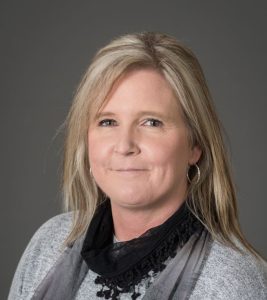 Ms. Carri Gordon has worked for the Washington State Patrol since 1991. For 17 years, she worked in the Communications Division, with the last five years as the training program manager, responsible for all dispatch/radio training for troopers and dispatchers. During this time, Ms. Gordon was heavily involved with implementing the Washington State America’s Missing: Broadcast Emergency Response (AMBER) Alert Plan and developing related procedures and training.
Ms. Carri Gordon has worked for the Washington State Patrol since 1991. For 17 years, she worked in the Communications Division, with the last five years as the training program manager, responsible for all dispatch/radio training for troopers and dispatchers. During this time, Ms. Gordon was heavily involved with implementing the Washington State America’s Missing: Broadcast Emergency Response (AMBER) Alert Plan and developing related procedures and training.
In June 2012, Ms. Gordon became the Washington State AMBER Alert Coordinator and Missing Persons Clearinghouse Manager. She assists the National Criminal Justice Training Center of Fox Valley Technical College with first responder curriculum development and instructional delivery, both classroom and webinar events related to missing child and missing person investigations.
Ms. Gordon and her team handle all missing person alerts in Washington State on a 24/7 basis. She was crucial to the recent implementation of the Missing Indigenous Person Alert and implementing new alerting technology that enables her team to geographically send alerts to cell phones near the location where a person went missing, including photos of the missing person.
Ms. Gordon has supported the National Ashanti Alert Network’s work as a member of a stakeholder working group and presenter.
 Major Stacie Rhoads is Commander of the Arkansas State Police Criminal Investigation Division, which oversees criminal investigative activities across the state. Major Rhoads has been with ASP for 27 years, during which she spent most of her career conducting criminal investigations. She studied Graphic Design at Arkansas Tech but never found a passion for working in that field. After becoming the victim of a violent crime, Major Rhoads discovered her purpose and calling when she enlisted in the United States Marine Corps. She earned her law enforcement certification in 1998 and has worked in various capacities, including Highway Patrol, undercover narcotics, public corruption, and criminal investigations. She is currently the only female major with ASP. She was named the statewide alerts coordinator in 2020. In 2015, she was appointed by Governor Asa Hutchinson to serve on the Arkansas Commission on Law Enforcement Standards and Training. She is Chairman of the Executive Committee for the Arkansas State Fusion Center. She is a graduate of the FBI National Academy Session 266 and the DEA’s Drug Unit Commanders Academy – DUCA 78.
Major Stacie Rhoads is Commander of the Arkansas State Police Criminal Investigation Division, which oversees criminal investigative activities across the state. Major Rhoads has been with ASP for 27 years, during which she spent most of her career conducting criminal investigations. She studied Graphic Design at Arkansas Tech but never found a passion for working in that field. After becoming the victim of a violent crime, Major Rhoads discovered her purpose and calling when she enlisted in the United States Marine Corps. She earned her law enforcement certification in 1998 and has worked in various capacities, including Highway Patrol, undercover narcotics, public corruption, and criminal investigations. She is currently the only female major with ASP. She was named the statewide alerts coordinator in 2020. In 2015, she was appointed by Governor Asa Hutchinson to serve on the Arkansas Commission on Law Enforcement Standards and Training. She is Chairman of the Executive Committee for the Arkansas State Fusion Center. She is a graduate of the FBI National Academy Session 266 and the DEA’s Drug Unit Commanders Academy – DUCA 78.
Empowering Corrections Officers: AI-Driven Tools for Mental Wellness and Peak Performance
4:30pm-5:30pM | Room 303B | officer wellness
Corrections officers face unique challenges that take a toll on their mental health and overall performance. In this seminar, we’ll explore how AI-driven tools and peer support networks are transforming the way corrections officers thrive in high-stress environments. Attendees will learn how cutting-edge technology can provide personalized wellness resources, enhance resilience, and improve decision-making under pressure. Discover practical solutions that empower officers to manage stress, boost performance, and foster a healthier workplace culture. Join us to see how innovation is paving the way for a stronger, more supported corrections workforce.
PRESENTERS: Jennifer Hull, Deputy Director and Deputy Sergeant (ret.), Keel Digital, Daniel Stewart, Deputy Director and Ret.Chairman and Commissioner of the New York State Commission of Correction
 Jennifer Hull is a highly experienced law enforcement professional with over 23 years of service in the field. A former Staff Sergeant with a local Sheriff’s Department, Jennifer brings a wealth of knowledge and practical experience to her work. Her career includes not only frontline law enforcement but also valuable dispatch experience, which has rounded out her understanding of the diverse challenges faced by first responders.
Jennifer Hull is a highly experienced law enforcement professional with over 23 years of service in the field. A former Staff Sergeant with a local Sheriff’s Department, Jennifer brings a wealth of knowledge and practical experience to her work. Her career includes not only frontline law enforcement but also valuable dispatch experience, which has rounded out her understanding of the diverse challenges faced by first responders.
In addition to her extensive background in law enforcement, Jennifer serves on Michigan’s Line of Duty Death (LODD) team, offering support to officers and their families during the most difficult times following the death of an officer in the line of duty. This role underscores her deep commitment to the safety and well-being of those who serve the public.
In addition to her hands-on work in law enforcement, Jennifer has shared her expertise as an educator, teaching at local colleges and universities imparting her knowledge to the next generation of aspiring officers and public safety professionals.
Currently, Jennifer works with Keel Mind, an organization dedicated to supporting the mental health and wellness of first responders. Through her work at Keel Mind, she advocates for mental health resources and programs tailored to the unique needs of those who serve in high-stress environments, aiming to reduce the stigma around mental health issues in the first responder community.
With a lifelong commitment to public safety, education, and mental health advocacy, Jennifer Hull continues to make a meaningful impact in the lives of first responders and the communities they protect.
 As an Advisor for Keel Mind, Daniel Stewart is dedicated to advancing mental wellness solutions that integrate peer support and AI technology to enhance the mental healt and performance of correction officers. With a deep understanding of the challenges faced by first responders, Daniel focuses on innovative approaches that provide real-time support and long term benefits for those working in high stress environments. His expertise spans mental wellness, operational efficiency, and the development of tailored solutions for correction professionals nationwide.
As an Advisor for Keel Mind, Daniel Stewart is dedicated to advancing mental wellness solutions that integrate peer support and AI technology to enhance the mental healt and performance of correction officers. With a deep understanding of the challenges faced by first responders, Daniel focuses on innovative approaches that provide real-time support and long term benefits for those working in high stress environments. His expertise spans mental wellness, operational efficiency, and the development of tailored solutions for correction professionals nationwide.
Stewart served in the New York State executive branch, serving four governors as he led the regulatory oversight agency of the New York State Correction System NYSCOC, including all state prison facilities, county jail facilities, and the New York City department of correction (Riker’s Island), secure juvenile facilities and all police department lockups. The agency was initially created as a response to the Attica uprising, to depoliticize prison and jail operations and oversight.
Prior to his state service, Stewart served three terms as a City Councilor, and then three terms as Mayor of the City of Plattsburgh, New York. He helped to achieve the national ranking of being the #1 Small City in the United States by Site Selection Magazine for small city development opportunities. He was a team member in the re-use of the former Plattsburgh Air Force Base upon its BRACC Commission closure, widely recognized as the best re-use example of a military facility asset in the United States.
Stewart served his country as a Sergeant in the U.S. Armed Forces. During his service, he was awarded one achievement medal for professionalism and another for actions taken during an operational situation. He also earned the good conduct ribbon, longevity ribbon and an outstanding unit ribbon while on active duty.
After serving eight years of active duty, Stewart departed the military with high hopes, but shortly thereafter became a homeless veteran with major drug and alcohol addiction issues, and unaddressed PTSD. He found his way to sobriety in December of 1988 and has stayed clean and sober since that time. Twelve years after being homeless and living under a bridge for a period, he was sworn into office as the mayor of that same city. A road less traveled, but one that provides hope to others that he openly shares in hopes of inspiring others to face their personal situations.
Stewart’s service in local, state, and federal government service gives him a keen knowledge and understanding of the many implications and challenges involved in the decision-making process for deploying technology projects at all government levels. His personal life experiences and his desire to help communities solve critical issues are what have made him to be recognized as a thought leader when aligning stakeholders to address issues in common.
Illicit Vapes & Public Safety: Enforcement Strategies to Protect Communities
4:30pm – 5:30pm | Room 302 | public safety
The explosion of illicit disposable vapes is fueling a fast-growing public safety crisis in counties across America. These often unregulated, foreign-manufactured devices are flooding local markets, targeting youth with candy-like flavors, and evading federal oversight—all while undermining public health and fueling black-market activity.
This session will feature expert insights from AJ Lugo, a nationally recognized authority on contraband interdiction and enforcement tactics, and Carlos Sandoval, a former ATF intelligence and field operations expert with deep experience coordinating multi-agency crackdowns. Together, they’ll outline the scope of the illicit vape threat, explain how trafficking networks are evolving, and offer actionable strategies for local enforcement leaders. The session will also spotlight how sheriffs can engage federal partners, lead public education efforts, and develop county-level plans to disrupt these illegal supply chains.
PRESENTER: Augustine “A.J.” Lugo, Jr., Assistant Special Agent in Charge (Ret.), Bureau of Alcohol, Tobacco, and Firearms (ATF), Carlos Sandoval, Senior Law Enforcement Consultant, Special Agent (Ret.), United States Department of Justice, Bureau of Alcohol, Tobacco, Firearms and Explosives
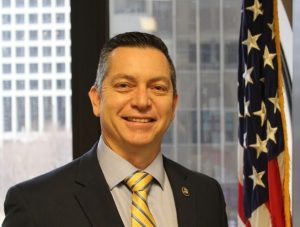 After over 25 years of federal service, Augustine “A.J.” Lugo, Jr. retired from the Bureau of Alcohol, Tobacco, and Firearms (ATF), ending his career proudly serving the men and women of the Dallas Field Division as an Assistant Special Agent in Charge. AJ led criminal investigative, intelligence, and critical incident response teams composed of ATF Special Agents, Taskforce Officers, and Intelligence Research Specialists in Oklahoma and North Texas.
After over 25 years of federal service, Augustine “A.J.” Lugo, Jr. retired from the Bureau of Alcohol, Tobacco, and Firearms (ATF), ending his career proudly serving the men and women of the Dallas Field Division as an Assistant Special Agent in Charge. AJ led criminal investigative, intelligence, and critical incident response teams composed of ATF Special Agents, Taskforce Officers, and Intelligence Research Specialists in Oklahoma and North Texas.
Before joining the Dallas Field Division, A.J. served as Chief of the Fire Investigation and Arson Enforcement Division and Branch Chief for the United States Bomb Data Center, where he supervised intelligence analysis and training related to arson and explosives. He also oversaw ATF’s National Response Team, which responded to major arson and explosives-related incidents throughout the U.S. and abroad. Before his role as Division Chief, A.J. served as the Resident Agent in Charge in Springfield, Missouri, leading a team of ATF Special Agents and Taskforce Officers focused on dismantling various domestic and international criminal organizations involved in violent crimes related to firearms, narcotics, and cigarette trafficking.
AJ began his ATF career in Baton Rouge, Louisiana, as an ATF Special Agent, focusing on federal and state violent firearms and drug-related offenses. During his time in Baton Rouge, AJ formed and led a multiagency crime gun task force and was a founding member of a multiagency Violent Crime Unit composed of various federal, state, and local investigators and prosecutors. Currently based in the Dallas-Fort Worth area, AJ splits his time between independent investigative and security consulting and volunteer work.
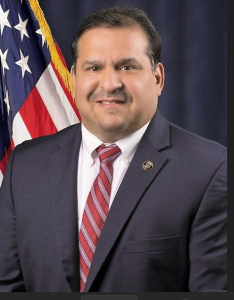 Carlos Sandoval is currently a senior law enforcement consultant and began his profession in July of 1986 serving as a Police Officer for the City of Arlington, Texas. In September of 1990 Sandoval began a 31-year career as a Special Agent with the U.S. Bureau of Alcohol, Tobacco, Firearms and Explosives fighting violent crime. He was a member of the ATF National Response Team and assisted in investigating large scale arson and explosives violations.
Carlos Sandoval is currently a senior law enforcement consultant and began his profession in July of 1986 serving as a Police Officer for the City of Arlington, Texas. In September of 1990 Sandoval began a 31-year career as a Special Agent with the U.S. Bureau of Alcohol, Tobacco, Firearms and Explosives fighting violent crime. He was a member of the ATF National Response Team and assisted in investigating large scale arson and explosives violations.
Sandoval was assigned to the ATF in the Dallas Field Division. Sandoval conducted investigative field work, and over one hundred undercover operations purchasing firearms, illegal firearms, explosives, contraband cigarettes, illegal liquor, controlled substances, and stolen property for Federal and State prosecution. Sandoval further conducted complex case investigations involving Mexican cartels, and ethnic gangs and utilized Rico statues to dismantle these organizations. Sandoval conducted over one thousand interviews with victims, witnesses, suspects, and defendants. Sandoval testified in Federal and State Judicial Districts in Oklahoma, Texas, Arkansas, and California for violations of firearm, controlled substance, violent offenses, and explosives. Carlos Sandoval has been recognized for his dedication and expertise in combating crime, earning commendations throughout his career. His commitment to law enforcement has been instrumental in the successful prosecution of many high-profile cases.
Sandoval was born in Laredo, Texas and earned a Bachelor of Science degree in criminal justice from Texas State University in San Marcos, Texas.
Legal Updates on Handcuffing Law and Emerging Caselaw
4:30PM – 5:30PM | Room floridian C | legal affairs
The Legal Updates on Handcuffing Law and Emerging Cases course will provide a critical examination of recent legal developments, court rulings, and evolving standards surrounding the use of handcuffs by law enforcement. With increasing scrutiny on use-of-force policies and civil rights litigation, the courts sudden crack down on how law enforcement uses handcuffs should make every agency review their training and policy because plaintiff attorneys will be.
This course will analyze key court decisions that are reshaping handcuffing protocols, liability concerns, and constitutional considerations, particularly regarding excessive force claims and wrongful detention lawsuits. Participants will gain invaluable insights into best practices, policy adjustments, and emerging legal trends that could significantly impact their professional responsibilities. Failure to stay updated on these legal shifts could result in costly litigation, disciplinary actions, or even criminal liability.
PRESENTERS: Spencer Lay, Associate Legal Advisor, Ada County Sheriff’s Office, Michelle Madder, Food Services Supervisor, Ada County Sheriff’s Office
The Americans with Disabilities Act & Law Enforcement: Accommodating Individuals in a Mental Health Crisis
4:30pm – 5:30pm | Room floridian D | legal affairs
This seminar will explore the legal duty to accommodate individuals with a physical or mental disability under the ADA in the context of law enforcement. It will include an overview of relevant provisions of the ADA, current federal case law on accommodating people in crisis during a law enforcement encounter, policy trends and best practices, and how to reduce the risk of an ADA violation. It will also cover recommendations for responding to an ADA complaint to improve the chance of a positive outcome.
PRESENTER: Billy Williams, Partner, Best Best & Krieger LLP, Sarah Monkton, Partner, Best Best & Krieger LLP
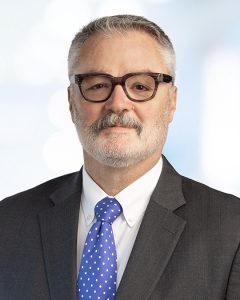 Billy Williams, former U.S. Attorney for the District of Oregon, now counsels public, private, and tribal clients as Partner with Best Best & Krieger LLP. During his 20-year tenure with the U.S. Department of Justice, Billy held multiple leadership positions, including Criminal Division Chief and Violent Crimes Unit Chief. In addition to gaining significant experience at the intersection of law enforcement and prosecutions, he became widely known as a balanced and effective consensus builder who strives to provide unbiased and apolitical justice. Today, Billy advises a range of clients on compliance and policy matters relating to law enforcement and other topics.
Billy Williams, former U.S. Attorney for the District of Oregon, now counsels public, private, and tribal clients as Partner with Best Best & Krieger LLP. During his 20-year tenure with the U.S. Department of Justice, Billy held multiple leadership positions, including Criminal Division Chief and Violent Crimes Unit Chief. In addition to gaining significant experience at the intersection of law enforcement and prosecutions, he became widely known as a balanced and effective consensus builder who strives to provide unbiased and apolitical justice. Today, Billy advises a range of clients on compliance and policy matters relating to law enforcement and other topics.
 Sarah Monkton, a Partner with Best Best & Krieger LLP, provides general and special counsel services to public, private, and tribal clients. Sarah’s prior role as Chief of Enforcement for the Alaska State Commission for Human Rights, in which she was responsible for overseeing the State’s civil rights investigations, continues to inform her work. Today, her practice includes advising public and private clients on civil rights complaints, investigations, and federal and state anti-discrimination laws. She also counsels law enforcement entities on other issues, including policy and compliance, employment, and the legal defense of civil matters.
Sarah Monkton, a Partner with Best Best & Krieger LLP, provides general and special counsel services to public, private, and tribal clients. Sarah’s prior role as Chief of Enforcement for the Alaska State Commission for Human Rights, in which she was responsible for overseeing the State’s civil rights investigations, continues to inform her work. Today, her practice includes advising public and private clients on civil rights complaints, investigations, and federal and state anti-discrimination laws. She also counsels law enforcement entities on other issues, including policy and compliance, employment, and the legal defense of civil matters.
The New RISS Mobile App – The Future of Law Enforcement
4:30pm – 5:30PM | Room 301 | future of law enforcement
The RISS Program has provided trusted support to county sheriff’s offices for over 50 years. RISS is represented by six regional centers locally known as NESPIN, MAGLOCLEN, ROCIC, MOCIC, RMIN, and WSIN. While RISS is usually an investigative tool after the fact – resources are now available to deputies in the field during the investigative process. The new tool that RISS has developed is the RISS Mobile App. This secure mobile application allows deputies to access key RISS resources in the field including queries to the RISS criminal intelligence databases (RISSIntel) and also to make on the go event deconfliction entries into RISSafe. The RISS Mobile app also introduces the capability to do an across-the-board single query into RISSIntel and the RISS Collaboration Sites including RISSLeads and the Officer Safety and Wellness Site as well as many others to be added in the future. A single query can instantly bring back both information from RISSIntel and the collaboration sites in an easy to read and access list. The mobile app leverages the security of the RISSNET backbone and many of the features that come natively on a mobile device. The RISS Mobile app is currently available in the Apple App Store and the next iteration will be available on Android devices.
In addition to the new RISS Mobile App, this session will cover the status of other RISS information sharing efforts that can help deputies including the Money Counter Network (MCN), the RISSIntel partnership with FBI N-DEx, RISS engagement with cryptocurrency investigations, and the RISS partnership with the Washington/Baltimore HIDTA to enhance target/subject/case deconfliction.
PRESENTER: Sheriff Joseph Konrath, Marquette County, Wisconsin, Matthew B. McDonald, Chief Information Officer, Regional Information Sharing Systems (RISS), James R Vaughn, Law Enforcement Coordinator, Regional Organized Crime Information Center (ROCIC), Henry Oleyniczak, Chief Research Officer, Regional Information Sharing Systems (RISS)
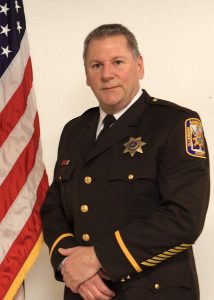 Joseph Konrath is currently the Sheriff of Marquette County, Wisconsin serving his second term in office. He started his law enforcement career in 1984 and rose through the ranks from Dispatcher/Jailer, Patrol Deputy, Detective Sergeant to Chief Deputy. On July 22, 2023, Sheriff Konrath received the Edward J. Ormsby Law and Order Award from The America Legion Department of Wisconsin. On April 16, 2021, he completed the National Association of Counties Leadership Academy Training. He graduated from the FBI National Academy, Session 234 in 2008 and served as President of the FBINAA Wisconsin Chapter, 2016-2017. He has been a member of MOCIC since 2000. He served on the State Review Committee for three years. In March of 2016, he filled the interim Executive Committee Alternate position for Wisconsin. Since September 2019 he has been on the MOCIC Executive Committee for Wisconsin. He is currently the Board Chair.
Joseph Konrath is currently the Sheriff of Marquette County, Wisconsin serving his second term in office. He started his law enforcement career in 1984 and rose through the ranks from Dispatcher/Jailer, Patrol Deputy, Detective Sergeant to Chief Deputy. On July 22, 2023, Sheriff Konrath received the Edward J. Ormsby Law and Order Award from The America Legion Department of Wisconsin. On April 16, 2021, he completed the National Association of Counties Leadership Academy Training. He graduated from the FBI National Academy, Session 234 in 2008 and served as President of the FBINAA Wisconsin Chapter, 2016-2017. He has been a member of MOCIC since 2000. He served on the State Review Committee for three years. In March of 2016, he filled the interim Executive Committee Alternate position for Wisconsin. Since September 2019 he has been on the MOCIC Executive Committee for Wisconsin. He is currently the Board Chair.
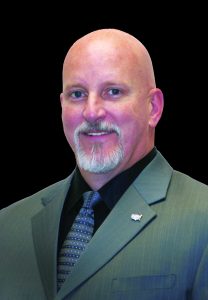 Matthew McDonald is the Regional Information Sharing Systems (RISS) Chief Information Officer (CIO). As the RISS CIO, Mr. McDonald represents RISS and its interests at the national level and promotes the value of RISS services, programs, and resources. Mr. McDonald maintains and fosters opportunities to present RISS’s solutions for information sharing, deconfliction, and investigative support, to criminal justice partners.
Matthew McDonald is the Regional Information Sharing Systems (RISS) Chief Information Officer (CIO). As the RISS CIO, Mr. McDonald represents RISS and its interests at the national level and promotes the value of RISS services, programs, and resources. Mr. McDonald maintains and fosters opportunities to present RISS’s solutions for information sharing, deconfliction, and investigative support, to criminal justice partners.
Prior to joining RISS, Mr. McDonald served 23 years with the Philadelphia, Pennsylvania, Police Department, serving on task forces with the U.S. Drug Enforcement Administration (DEA), the Organized Crime Intelligence Unit and DEA Administration Violent Traffickers Project, and the Alcohol, Tobacco, Firearms and Explosives’ Philadelphia/Camden High Intensity Drug Trafficking Area Task Force.
Mr. McDonald holds a Master of Science degree in Criminal Justice and a Bachelor of Science degree in Sociology from St. Joseph’s University in Philadelphia.
Mr. McDonald has provided expert witness testimony for the United States Attorney’s Office, Eastern District of Pennsylvania on the topics of Gangs, Weapons, Drugs and Violent Crimes.
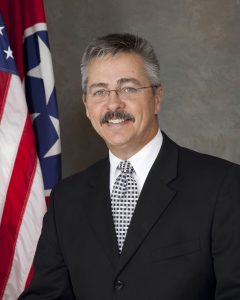 Jim Vaughn is a Law Enforcement Coordinator for the Regional Organized Crime Information Center (ROCIC). Jim began his career with ROCIC after retiring from the Hendersonville, Tennessee Police Department in September 2018. He currently serves 158 Law Enforcement Agencies in middle and east Tennessee.
Jim Vaughn is a Law Enforcement Coordinator for the Regional Organized Crime Information Center (ROCIC). Jim began his career with ROCIC after retiring from the Hendersonville, Tennessee Police Department in September 2018. He currently serves 158 Law Enforcement Agencies in middle and east Tennessee.
Jim spent his entire 36-year career with the Hendersonville Police Department where he retired as Lieutenant in the Criminal Investigation Division. Over the course of his career, he spent 29 years in the Criminal Investigation Division, 21 of those years as a Detective and the remaining 8 years in supervision. He also served as the Public Information Officer. He successfully investigated hundreds of crimes that included several high-profile, multi-state felony investigations. As a result of those investigations, Jim received accolades and commendations from the Federal Bureau of Investigations and the City of Hendersonville including Outstanding Police Officer of the Year in 1992. Along with multiple speaking engagements he was also an Adjunct Instructor for the Tennessee Law Enforcement Training Academy.
Jim earned his bachelor’s degree from Middle Tennessee State University and an Associates of Science Degree from Volunteer State Community College. He is also a graduate of the Northwestern University School of Police Staff and Command and the Tennessee Law Enforcement Training Academy. He also has more than 2600 hours of law enforcement specialized training.
Jim spent 12 years as a County Commissioner for the 6th District of Sumner County, Tennessee, he is also a past President and Charter Member of Fraternal Order of Police Lodge 63 and a Charter Member of the Tennessee Gang Investigator’s Association.
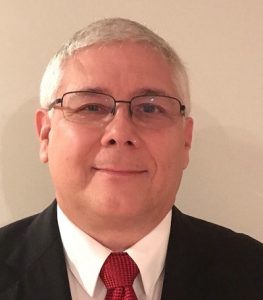 Henry D. Oleyniczak currently serves as the Chief Research Officer for the Regional Information Sharing Systems (RISS) Program. Mr. Oleyniczak has served in several positions in his 40+ year law enforcement, technology and information sharing career including:
Henry D. Oleyniczak currently serves as the Chief Research Officer for the Regional Information Sharing Systems (RISS) Program. Mr. Oleyniczak has served in several positions in his 40+ year law enforcement, technology and information sharing career including:
-
-
- Law Enforcement & Information Technology consultant for both RISS and the National Ashanti Alert Network Technical Assistance Team
- Senior Law Enforcement Advisor for the Office of the Director of National Intelligence (ODNI), Policy & Capabilities Directorate – Federal, State, Local, Tribal, & Territorial Partnerships Group
- Senior Public Safety and Technology Advisor for the Program Manager – Information Sharing Environment (PM-ISE)
- Senior Manager, Security Operations for Ricoh Americas Corporation (Global Fortune 500 Company)
- Deputy Chief Technology Officer – Operations for the RISS Program.
- Deputy Commissioner – Pennsylvania State Police holding the rank of Lieutenant Colonel.
- Trooper, Corporal, Sergeant, Lieutenant, Captain and Major – Pennsylvania State Police
-
Mr. Oleyniczak holds a Master of Management degree and Bachelor of Science degree in Administration of Justice, both from the Pennsylvania State University. Mr. Oleyniczak is a graduate of the 192nd session of FBI National Academy in Quantico, VA, the 204-02 session of the United States Secret Service Dignitary Protection School, the Penn State University Advanced Police Executive Development Program (POLEX) and the Duke University Strategic Leadership for State Executives program. Mr. Oleyniczak was also instrumental in the development and implementation of the Incident Command System (ICS) within the Pennsylvania State Police.
